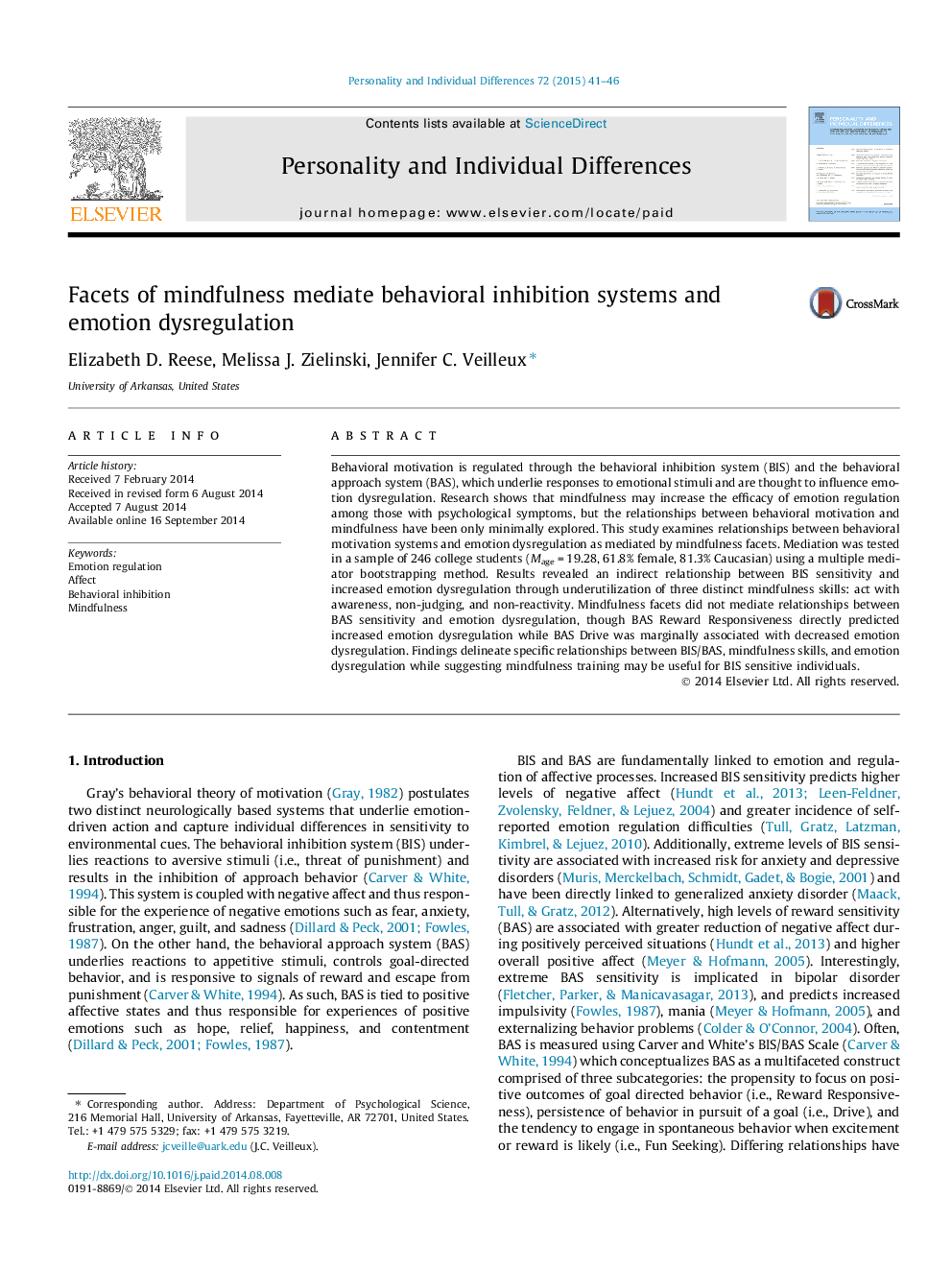| Article ID | Journal | Published Year | Pages | File Type |
|---|---|---|---|---|
| 7252025 | Personality and Individual Differences | 2015 | 6 Pages |
Abstract
Behavioral motivation is regulated through the behavioral inhibition system (BIS) and the behavioral approach system (BAS), which underlie responses to emotional stimuli and are thought to influence emotion dysregulation. Research shows that mindfulness may increase the efficacy of emotion regulation among those with psychological symptoms, but the relationships between behavioral motivation and mindfulness have been only minimally explored. This study examines relationships between behavioral motivation systems and emotion dysregulation as mediated by mindfulness facets. Mediation was tested in a sample of 246 college students (Mage = 19.28, 61.8% female, 81.3% Caucasian) using a multiple mediator bootstrapping method. Results revealed an indirect relationship between BIS sensitivity and increased emotion dysregulation through underutilization of three distinct mindfulness skills: act with awareness, non-judging, and non-reactivity. Mindfulness facets did not mediate relationships between BAS sensitivity and emotion dysregulation, though BAS Reward Responsiveness directly predicted increased emotion dysregulation while BAS Drive was marginally associated with decreased emotion dysregulation. Findings delineate specific relationships between BIS/BAS, mindfulness skills, and emotion dysregulation while suggesting mindfulness training may be useful for BIS sensitive individuals.
Related Topics
Life Sciences
Neuroscience
Behavioral Neuroscience
Authors
Elizabeth D. Reese, Melissa J. Zielinski, Jennifer C. Veilleux,
